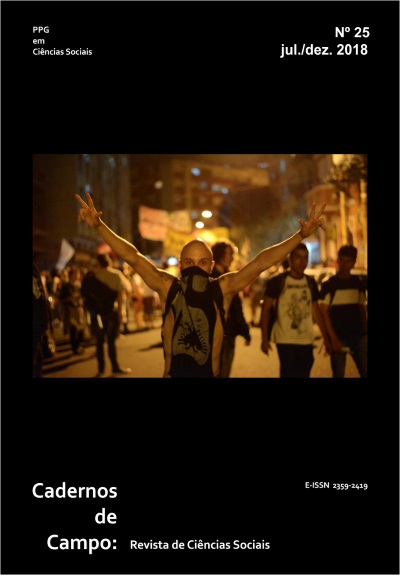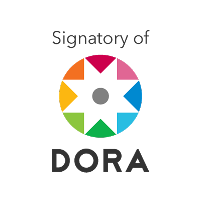The institutionalization of anti-corruption agencies in Brazil: potentialities and challenges
Keywords:
Institutional crisis, Anti-corruption agencies, Institutional reform, Constitutional reformAbstract
Currently, corruption is the problem that most plagues the credibility of government institutions. Several countries around the world have been engaged in the development and implementation of prevention and combat strategies. The proposal of creating anti-corruption agencies stands out among such actions. This article presents an analysis of the conditions of institutionalization of these institutions in Brazil. From the examination of international experiences considered successful (Hong Kong, Singapore and the United states), it is discussed in this work not only the viability of the model, but the criteria for the use of the Brazilian institutional arrangement for the fighting corruption in the country. In view of the current political, economic and social panorama, which demands the rethinking of the institutions themselves, it is advocated constitutional reform that covers the creation of an independent state body and specialized in the prevention and combating of corruption, which, before of the complexity and the systemic character of the phenomenon in the country, it must go back in full to the confrontation of the problem.Downloads
References
ANTI-CORRUPTION AUTHORITIES. Country Profiles. Anti-Corruption Authorities, 2016. Disponivel em: <http://www.acauthorities.org/>. Acesso em: 04 de Agosto de 2016.
CONTROLADORIA GERAL DO MUNICÍPIO DE SÃO PAULO. Controladoria em casos: experiências inovadoras para o combate à corrupção e a promoção da integridade na cidade de São Paulo. Controladoria Geral do Município de São Paulo. São Paulo, p. 58. 2016.
CONTROLADORIA-GERAL DA UNIÃO. Convenção das Nações Unidas contra a Corrupção. 1ª. ed. Brasília: CGU, 2008
FEDERAL BUREAU OF INVESTIGATION. What we investigate: Public Corruption. Federal Bureau of Investigation - FBI, 2016. Disponivel em: <https://www.fbi.gov/investigate/public-corruption>. Acesso em: 04 de Junho de 2017.
FERREIRA, L. V.; FORNASIER, M. D. O. Agências Anticorrupção e Administração Pública: Uma Perspectiva Comparada entre Brasil e Outros Países. Quaestio Iuris, Rio de Janeiro, v. 08, n. 03, 2015, p. 1583-1601.
FILGUEIRAS, F. A tolerância à corrupção no Brasil: uma antinomia entre normas morais e prática social. Opinião Pública, Campinas, v. 15, p. 386-421, Novembro 2009.
FRAGA, E. Estudos revelam como a corrupção prospera e funciona. Folha de São Paulo, 2016. Disponivel em: <http://www1.folha.uol.com.br/ilustrissima/2016/05/1773117-estudos-revelam-como-a-corrupcao-prospera-e-funciona.shtml>. Acesso em: 20 de Julho de 2016.
HEILBRUNN, J. R. Anti-corruption comissions: panacea or real medicine to fight corruption? World Bank Institute, 2004.
HIN, K. T. Corruption Control in Singapore. The 13th International Training Course on the Criminal Justice Response to Corruption: Visiting Experts' Papers (UNAFEI), 2011. Disponivel em: <http://www.unafei.or.jp/english/pdf/RS_No83/No83_17VE_Koh1.pdf>. Acesso em: 19 de Julho de 2016.
HUSSMAN, K.; HECHLER, H.; PEÑAILILLO, M. Institutional arrangements for corruption prevention: Considerations for the implementation of the United Nations Convention against Corruption Article 6. U4 Issue, Bergen, 4, 2009. 1-26. Disponivel em: <http://www.u4.no/>. Acesso em 22 de Junho de 2018.
INDEPENDENT COMISSION AGAINST CORRUPTION. Brief History. Independent Comission Against Corruption, 2016. Disponivel em: <http://www.icac.org.hk/mobile/en/about_icac/bh/index.html>. Acesso em: 18 de Junho de 2018.
MONTEIRO, F. M. Anti-Corruption Agencies: Solution or Modern Panacea? Lessons from Ongoing Experiences. The George Washington University School of Business - Institute of Brazilian Issues. p. 61. 2013.
PETERS, B. G.; ERKKILÄ, T.; MARAVIć, P. V. Corruption. In: PETERS, B. G.; ERKKILÄ, T.; MARAVIC, P. V. Public Administration: Research Strategies, Concepts and Methods. 1ª. ed. New York: Routledge, 2016. Cap. 7, p. 113-126.
PLESSIS, A. D. Corruption isn't just a developing world issue, and it's time Western leaders did more. World Economic Forum, 2016. Disponivel em: <https://www.weforum.org/agenda/2016/05/corruption-isn-t-just-a-developing-world-issue-and-it-s-time-western-leaders-did-more/>. Acesso em: 21 de Junho de 2018.
QUAH, J. S. T. Combating Corruption in Singapore: What Can Be Learned? Journal of Contingencies and Crisis Management, 9, n. 1, Março 2001. p. 29-35.
ROCHA, L. G. O combate à corrupção em redes interorganizacionais: um estudo da Estratégia Nacional de Combate à Corrupção e à Lavagem de Dinheiro. Revista da CGU, Brasília, p. 70-82, Ano III, nº 5, Dezembro/2008.
SANTOS, R. A. D. Institucionalização dos mecanismos anticorrupção: da retórica ao resultado. Revista da CGU, Brasília, Setembro 2009.
SILVA, M. F. G. D.; GARCIA, F.; BANDEIRA, A. C. How does corruption hurt growth? Evidences about the effects of corruption on factors productivity and per capita income, 2001.
SIMONE, F. D.; TAXELL, N. Donors and "zero tolerance for corruption": From principle to practice. U4 Anti-Corruption Resource Centre. February, 2013.
SOUSA, L. D. As agências anticorrupção como peças centrais de um sistema de integridade. Revista da CGU, Brasília, p. 20-45, Junho 2008.
SPINELLI, M. Desmontando a máfia dos fiscais (Entrevista). Cautelar: Revista do Tribunal de Contas do Estado do Rio Grande do Sul, Porto Alegre, p. 6-8, Ano IV - Nov/2014.
TRANSPARENCY INTERNATIONAL. Corruption Perceptions Index 2015: Data and Methodology. Transparency International, 2015. Disponivel em: <http://www.transparency.org/cpi2015>. Acesso em: 02 de Novembro de 2017.
GOVERNMENT ACCOUNTABILITY OFFICE. About GAO. U.S. Government Accountability Office, 2016. Disponível em: <http://www.gao.gov/about/index.html>. Acesso em: 04 de Novembro de 2017.
UNITED NATIONS DEVELOPMENT PROGRAMME. Institutional Arrangements to Combat Corruption: A Comparative Study. United Nations Development Programme. Bangkok, p. 101. 2005.
UNITED STATES OFFICE OF GOVERNMENT ETHICS. Missions and Responsabilities. United States Office of Government Ethics, 2016. Disponível em: <https://www.oge.gov/Web/OGE.nsf/Mission%20and%20Responsibilities>. Acesso em: 04 de Agosto de 2017.
VIEIRA, F. M. Cultura brasileira e corrupção. Revista da CGU, Brasília, p. 46-62, Junho 2008.
WORLD ECONOMIC FORUM. Outlook on the Global Agenda 2015. World Economic Forum. Colony/Geneva, p. 94. 2014.









